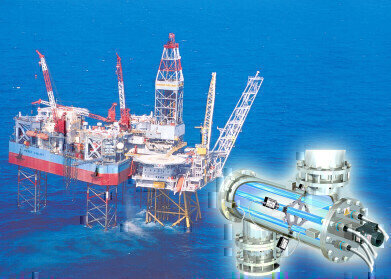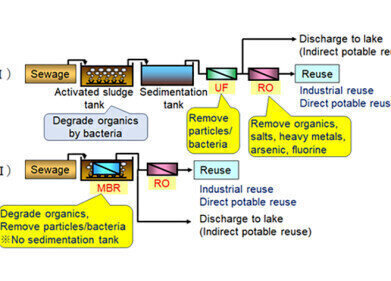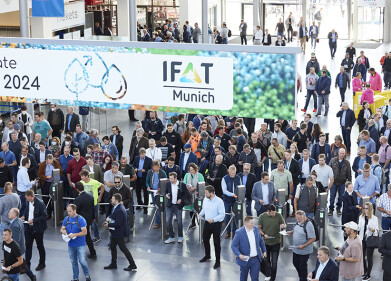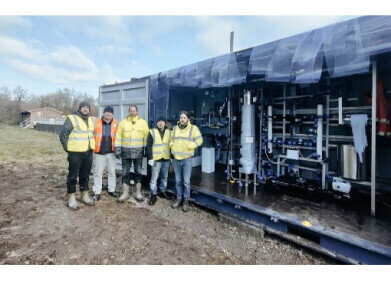Water/Wastewater
UV Disinfection of Downhole Injection Water
Mar 19 2009
Ultraviolet (UV) disinfection specialist Hanovia (UK) has developed a UV system which prevents microbial contamination of downhole injection water during oil recovery. UV reduces the need for traditional disinfection chemicals, which can be expensive, highly toxic and potentially hazardous to transport and store under offshore conditions.
The quality of injection water is critical. It must be free from suspended solids and have a low oxygen content to prevent the growth of aerobic microorganisms. It is also important that the water is free from anaerobic bacteria, especially sulphate reducing bacteria, which flourish in anaerobic conditions by reducing existing sulphate ions to hydrogen sulphide (H2S) gas. H2S is highly corrosive and reduces the market value of the oil by increasing its sulphide content, caused pipeline corrosion, and can be a potential health hazard to personnel. UV disinfection, supplemented by periodic shock dosing using chemical biocides, is one of the most cost-efficient methods of minimising microbiological contamination in injection water, by both aerobic and anaerobic bacteria. UV treatment also dramatically reduces the frequency of chemical dosing and therefore the cost of handling and transporting chemicals. Several stages of water treatment are often needed to obtain injection water of adequate quality, so a combination of physical treatment and UV disinfection may be used. The UV system should ideally be the last stage of the water treatment process. This ensures that there is minimal opportunity after disinfection for re-introduction of contamination microorganisms. A typical Hanovia UV disinfection system is highly compact, modular and easy to install within existing pipework with minimal disruption. Shock dosing with chemicals does not require the complex monitoring equipment which is necessary if biocides are used as a primary disinfectant. In addition, UV does not produce any unwanted by-products. Exactly the same principle of UV disinfection can be applied to the treatment of drinking water on offshore platforms. A UV disinfection system can be used after storage, at the point of use, to eliminate bacteria, mould, yeasts and fungi which can contaminate water supplies. UV has no effect on the taste, odour or chemical composition of the water.Events
Apr 24 2024 Sao Paulo, Brasil
May 05 2024 Seville, Spain
May 13 2024 Munich, Germany
May 23 2024 Beijing, China
May 23 2024 Beijing, China













